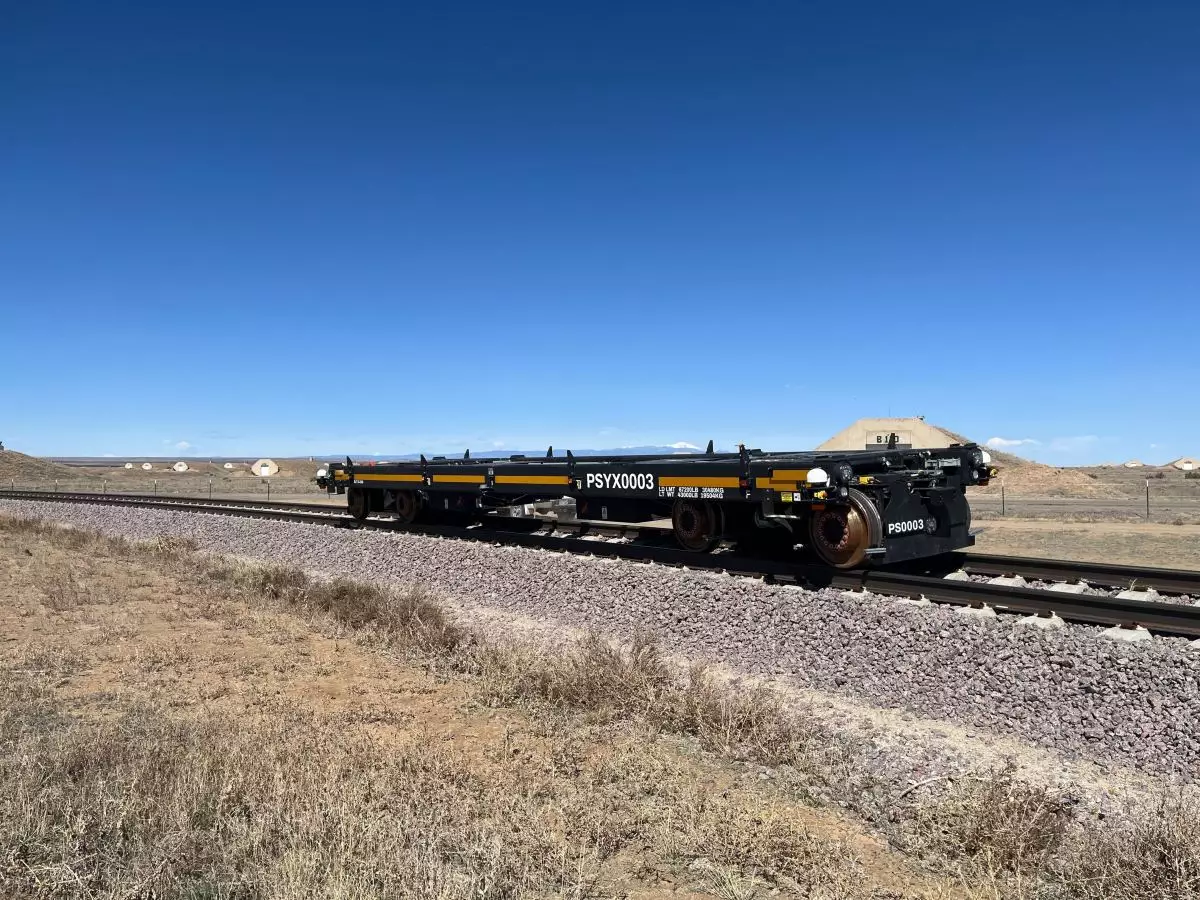In the vast landscape of freight transportation across the United States, trucks have long been the prevailing dominators, carrying approximately two-thirds of the staggering 20.2 billion tons of goods transported annually. This heavy reliance on road transport has not only contributed to traffic congestion and pollution but has also led to inefficiencies in logistics, particularly for short-distance deliveries. Enter Parallel Systems, a trailblazing company founded by Matt Soule, which aims to disrupt this long-standing norm by marrying modern technology with the railroads. By focusing on battery-powered, autonomous freight solutions, Soule and his team are presenting a compelling alternative to traditional trucking methods, pushing the boundaries of what we thought was possible in freight transport.
Innovation at Its Core
At the heart of Parallel Systems’ approach is a significant departure from the conventional model of overhead locomotion characterized by massive, fuel-hungry engines. Instead, the company introduces a unique technological architecture that enables freight cars to operate autonomously. By allowing these freight cars to attach and detach without human intervention, the company not only accelerates the process but also mitigates risks associated with manual coupling—a notoriously dangerous undertaking in freight handling. Moreover, the system offers significantly quicker braking capabilities, making the operation safer and more efficient. Soule articulates this innovation with a focus on competitive economics, emphasizing the idea of making rail a more practical option for smaller scale operations rather than solely long-haul freight.
A Step Toward Modernization
Parallel Systems has garnered considerable attention lately, particularly following its approval from the Federal Railroad Administration to pilot its technology in Georgia. This pilot will take place over a 160-mile corridor stretching from the Port of Savannah to various local distribution hubs, serving as a real-world testing ground for the company’s autonomous technology. With a substantial infusion of capital—over $100 million raised, including a recent $38 million Series B round—the company is poised for commercialization, with ambitions to launch its services commercially by 2026. This timeline signifies a critical juncture, as the transition from ideation to real-world application is fraught with challenges but equally replete with potential.
Market Opportunities and External Pressures
The freight industry is under significant transformation pressure, particularly as global trade dynamics evolve and tariff discussions loom. Challenges such as these open up opportunities for innovation, driving businesses to rethink their shipping and distribution strategies. As companies look for cost-effective solutions, Parallel Systems could stand to gain traction, especially if tariffs are implemented that push logistics costs higher. As articulated by Sophie Bakalar of Collaborative Fund, interest in Parallel Systems comes from recognizing that the movement of goods directly impacts consumer companies. The convergence of shifting market needs and technological advancement creates fertile ground for Parallel’s innovative solutions to flourish.
Founder’s Unique Background
While Soule’s journey into the rail industry is unconventional, his rich experience in regulated transportation, particularly during his tenure at SpaceX, injects a new perspective into freight logistics. His background in avionics and cutting-edge technology development empowers him to approach freight transportation as a challenge ripe for innovation. The aspiration driving Parallel Systems is not merely to modernize rail but to completely revolutionize how freight is perceived and operated in the United States. It’s about reshaping an entire industry that has seen little disruptive change over decades.
Bridging the Gap Between Innovation and Regulation
A common barrier for companies operating within regulated industries like freight is the daunting compliance landscape. As Parallel Systems seeks to navigate this space, their success pivotally relies on collaboration with regulatory bodies, ensuring that their innovative technologies align with safety and operational standards. The upcoming pilot program will not only serve as a proving ground for their technology but will also test the waters for how effectively they can integrate into existing rail frameworks while complying with stringent regulations. This dual focus on innovation and regulation is vital to obtain buy-in from potential customers and stakeholders.
Global Aspirations with Local Focus
While Parallel Systems is capturing attention in the U.S. market, the company acknowledges burgeoning interest from international partners. However, its current strategy is to concentrate efforts within domestic boundaries and the Australian market, where the demand for efficient freight solutions remains high. This tailored focus enables Parallel to refine its technology and operational efficiencies before embarking on broader international endeavors, ensuring that they build a solid foundation from which to scale.
In a world yearning for sustainable and efficient transportation solutions, Parallel Systems stands at the forefront with groundbreaking technology that could redefine the landscape of freight delivery. The integration of autonomy and electrification into the global supply chain represents not just innovation but a pivot toward a more sustainable future.

